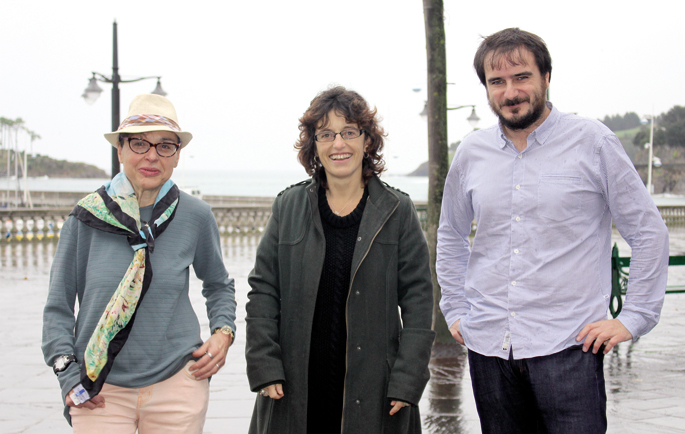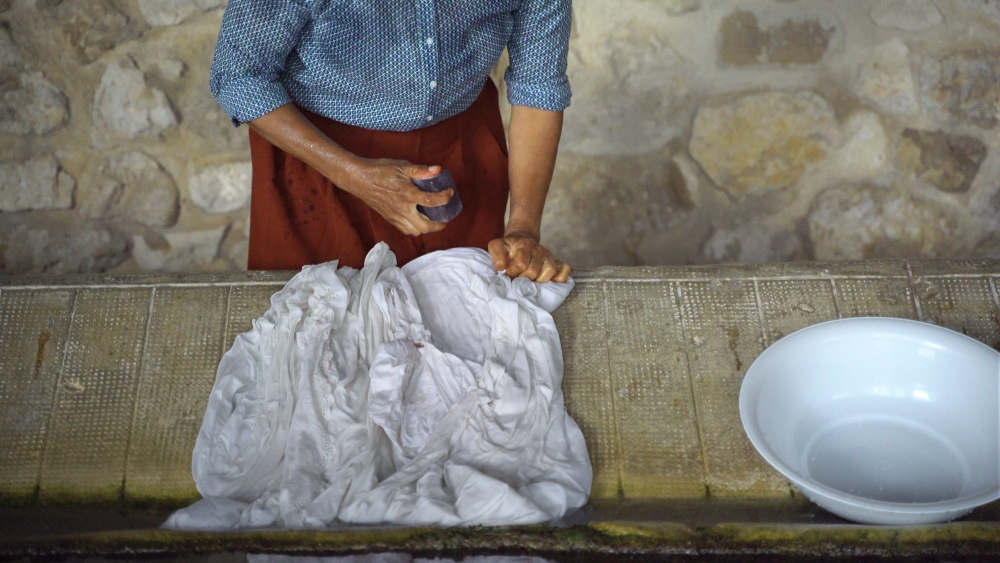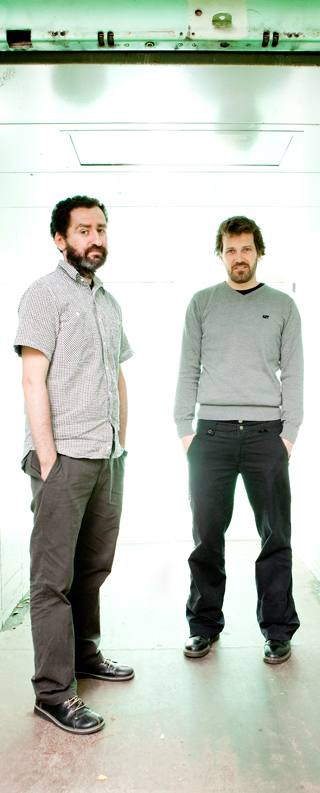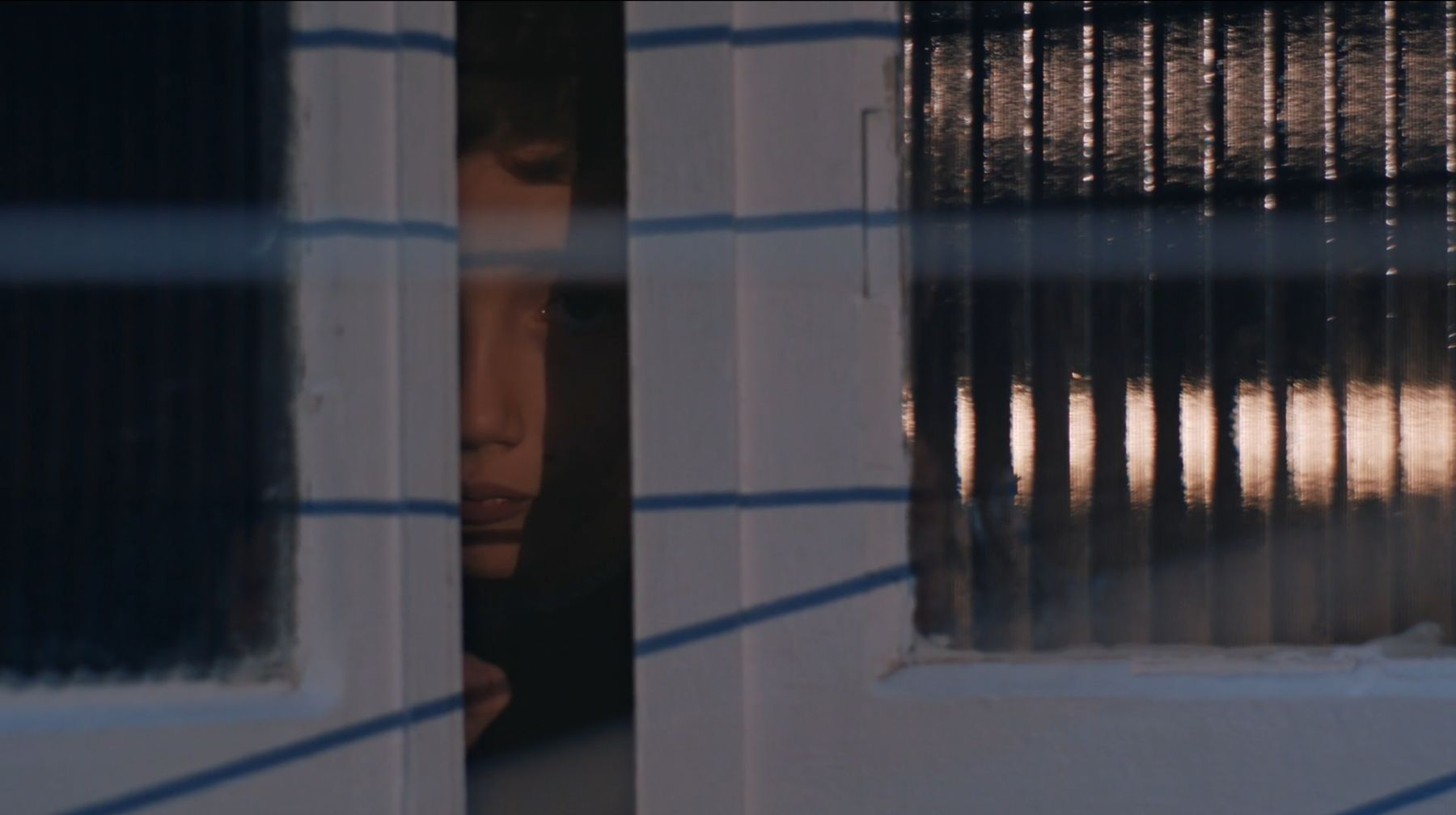Keys to valuing a film
- What to watch when we watch a movie? To this end, a round table was organized in the Basque Country Zine Bilera de Lekeitio. The critic Begoña del Teso and filmmakers Aitor Arrangi and Ane Muñoz gave us some keys.

How do forecasting influence when we're going to watch a movie? For example, how important should a film critique read before be?
A. Arrangi: Criticism influences, of course. Today we have lost innocence to a film: trailers, criticism... The information is abundant on the Internet and it is difficult to watch a movie without knowing anything, it is difficult not to make any prejudice. We should know how to filter out what comes to us, but it's true that the fact that a film has five stars shapes you.
B. del Teso: Stars are the great punishment that newspapers have imposed on us critics. Many people want to do everything, and in part it is normal, because they want to know if it is worth paying EUR 8 for entry. But what do you put three stars to? What is “Interesting”? It's easier to put five to two stars or a masterpiece; those three stars are the hardest and you already know that many times you're conditioning the success of this film in the halls. Am I going to give you three stars because you have interesting actors? Why have you armed jaleo? Because I want to save her when I'm small?... And when you put five stars, you also keep in mind that a people may not like anything; that is, those five stars are mine and you try to clarify them in the criticism: I have put five stars, but if you don’t like Ukrainian film, or such director, or the original version… don’t leave you, and when I have put
a star I don’t think the film penalty, but it may have been created for the effort, or for the fear it. Arrangi: Yes, because they force you to measure a movie, and how do you do that, how do you measure the immeasurable? There is no film that everyone finds terrible, and therefore cannot be categorical. We live in that paradox: on the one hand we want to measure films, but then we disagree with the number of stars and we complain. For me, the director and the actors are a guarantee; for example, I connect with David Fincher, and Leonardo DiCaprio also endorses me, because he tends to participate in good films.
A. Muñoz: I read the first critiques before I went to watch the movie, but I realized it was conditioned and I was annoyed not to go clean to the movies. People also tell you, after seeing the film, “I was expecting more,” always comparing it, instead of telling you what it looked like. Today, I read the critiques after watching the movie and one of the criteria that I take into account before is watching the movie in its original version.
B. del Teso: I'm looking for provocation in movies. I can't stand without seeing the movies I know beforehand. Will the film provoke me? Are you going to question me as a critic and as a human being?... I look for those sensations.
Our knowledge of film and our references can help us better value the film. How can we look at viewers?
A. Arrangi: That I entertain myself as a spectator, that's the first thing I ask of a movie, that I catch myself and that I keep wanting to follow the plot and know where the story goes. I like not knowing where the movie is going and where it's going, I get into the game and then I can try to see the other layers and the messages that the movie has, but not violate it. I am not very good at expressing the symbols and secret messages of the word; I liked it and in the next few hours and days I will have the film in my head, and that is a good feeling. The genre of adventures woke me the cinéphilous and I'm in the movie world, among others, by Indiana Jones. Trilogy has incredible actions and scripts, many times I've seen it and it's caught me. I don’t know how many layers you have, if you have to look from other points of view… What I know is that I really like it. In adolescence, I saw The Man Who Would Be King and he also took me. It’s a different kind of adventure movie, more rested… and you see there’s something else behind it. Later I discovered the Lawrence of Arabia, also adventure, and it has many layers, metaphors, etc. I know Lawrence is deeper than Indiana Jones, but you don't ask me to decide between them, I can see them over and over again, and that means they have something, but I don't know what the secret is. Every spectator has to listen to himself, did I like it? Well, that's a lot. If you laughed, don’t belittle your opinion because they say “officially” is a bad movie.
B. del Teso: Everyone takes the movie as they want and can, they see a movie and you don't have to make a deep reading. It is very different how we get to film and how they come now; for many children and young people, cinema is what you can see on the computer; you have to take into account the references, ages, tastes, the change of life… Now the cinema of the 1980s is fashionable, because the young people of that decade have now become organizers and critics of festivals, and their references are Goonias, Gremlinas and others.
A. Muñoz: In high school, we got Charles Chaplin's Modern Times, and I laughed a lot. When I saw her for the second time, I discovered new things, critique of modernity, human beings alienated by machines, a harsh economic and social reality... Besides being a fun film, I realized I had more readings and I began to look at other factors that trapped me beyond history. As I watched a lot of film, I realized that there may be a lot more to it than you see on the skin. I get the stories that are close, not because it's happened to me, but because they're able to create empathy in me. I'm going to see science fiction, I'm going to enjoy the show, the effects -- but I prefer small, human stories.
A. Arrangi: Science fiction, however, often tells us about very close and human things, but it comes out of our reality and counting from the outside is sometimes healthier to reflect very carefully on our society.
B. del Teso: On many occasions people get stuck, because the movie hasn't told anything about this or anything else. Quiet, enjoy and forget the motives and motives. If you’ve loved it, enjoy the beauty and don’t get hooked.
A. Muñoz: But sometimes the viewer wants to understand everything and gets frustrated. Let me bring you movies… I like to see only movies, and without a head in front.
B. del Teso: But there are films that need audience. ET. Seeing Kings Day in Astoria and surrounded by people, for example, is an experience you will not forget. The emotion of people, the livelihoods -- the same with many horror movies. To understand the success of the Twilight saga about vampires, for example, as a critic it is good to see it in a room full of people to know what it gives its followers.
In fact, some genres and types of films are undervalued. Is the assessment and the level of demand modified according to gender?
A. Muñoz: Within each genre you can find everything, in terms of objectives, depth, representations… Depending on the day and mood you have, I will choose one type or another of film, one gender or another. Sometimes you are looking for nothing more than an escape route in the movies.
A. Arrangi: In Western ETB, for example, there's a lot of work going on, and it's amazing to know how many things count in 80 minutes, among other things because they don't take so long to set and contextualize. You can find surprises in all genres; I used to think music is lighter in itself, but look at West Side Story, Cabaret, All That Jazz, Singin’ in the Rain… B.
Teso: Commercial cinema is often compared to junk, but cinema was born to be a commercial, as an attraction for fairs.
The films have two bases: history and script, on the one hand, and narrative, formal, aesthetic and technical aspects, on the other. Montxo Armendariz has said that all the stories are already told, that the way to tell the story and the director's gaze are what changes. What do you care about?
A. Arrangi: They are related to “what” and “how” and both are important. The audiovisual has the image in motion, but some directors tell everything through the script, explain everything to the viewer, the whole puzzle, and to me it is more beautiful when there are gaps in the puzzle, ellipsis… I prefer movies that look for a game between those two things, which are suggestive, that put strength in that “how” and ask the viewer for a little work, that explain everything and give categorical messages. They are two styles: Kubrick, for example, raises questions in his films and Spielberg gives answers, and Spielberg succeeds, because there are people who feel more comfortable and quieter.
B. del Teso: Because depending on the moment, sometimes you want answers and sometimes, ask questions. I, too, like Aitor, like when the director trusts me, takes me by the hand, but without giving him an exact idea, because he knows I'm smart. In many of the current movies, the director eats minutes and minutes to explain what you knew beforehand.
A. Muñoz: This complicity between the author and the viewer also seems to me to be more enriching, and in line with what Armendariz says, the director’s view is very important. For example, the LOREAK movie: history can be told in a thousand ways, and the way directors have done it has come to me, asking the viewer a little effort to try to understand the facts and the characters, but a nice effort, make him feel part of the story.
Hands have a varied symbology. With hands the world is driven and with strong fists the command is supported. Power also fights with fists, picking fingers and raising hands up. Hands are necessary for those who have always been the losers of life, for that alone has been an... [+]

























